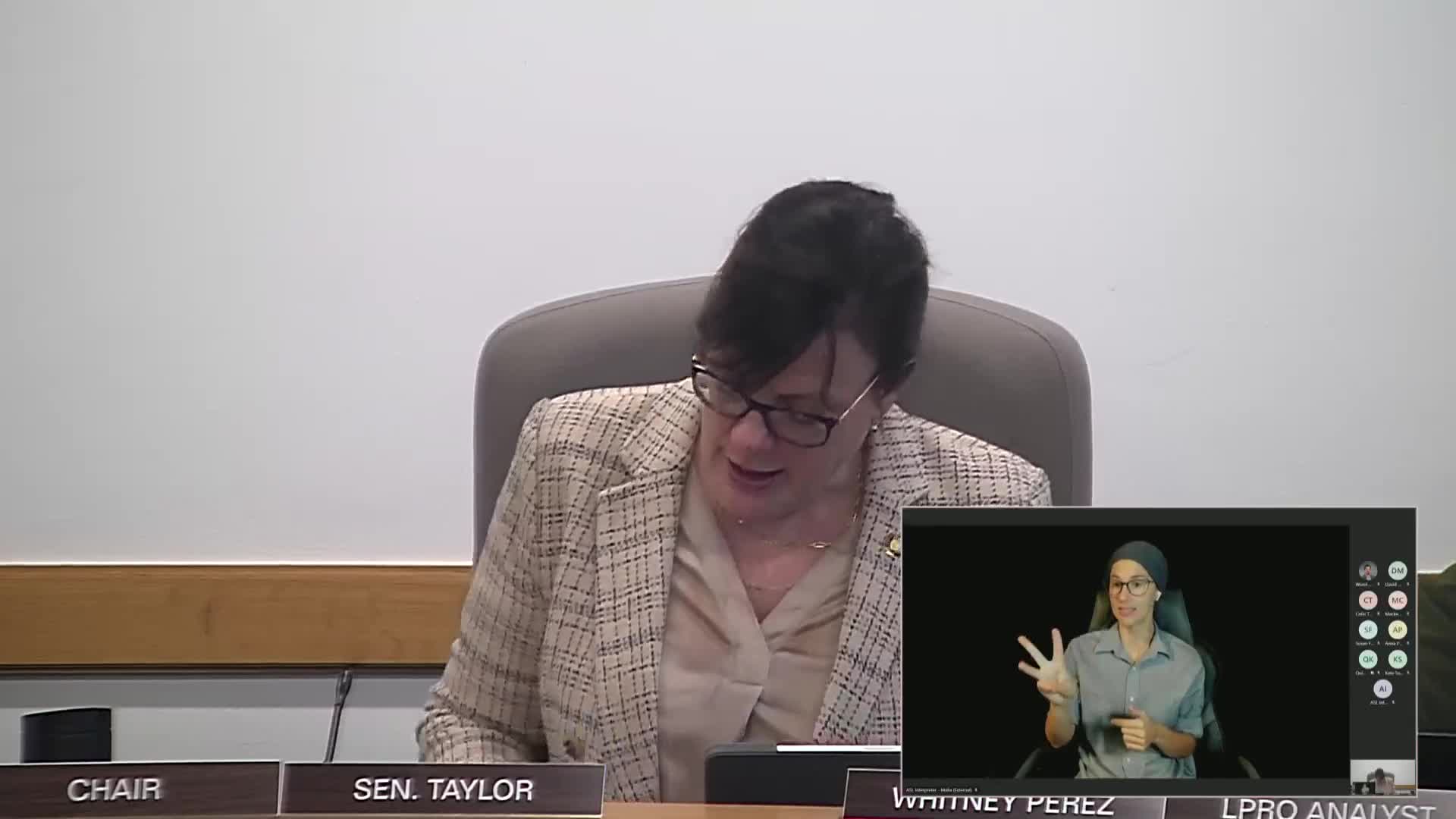Committee hears plan to fund Lewis & Clark small business legal clinic with $4 million grant
Get AI-powered insights, summaries, and transcripts
Subscribe
Summary
Senate Bill 569 would fund Lewis & Clark Law School’s Small Business Legal Clinic with a $4 million general‑fund appropriation to help underserved Oregon businesses form entities, enter contracts and pursue certifications; the Senate Committee on Labor and Business held a public hearing March 18.
The Senate Committee on Labor and Business held a public hearing on March 18 for Senate Bill 569, which would create a grant program administered by the Oregon Business Development Department to fund the Small Business Legal Clinic at Lewis & Clark Law School and assist underserved businesses across Oregon. The dash‑1 amendment replaces the measure and includes an appropriation of $4,000,000 from the general fund for the 2025‑27 biennium.
The amendment directs the department to establish a program to grant funds to the clinic so it can help underserved businesses form appropriate entities, enter contracts, obtain minority‑business certification, and otherwise develop or expand. The department would be required to monitor and evaluate the clinic’s performance and to report to the Legislative Assembly by Sept. 1, 2026.
Supporters told the committee the clinic can scale up quickly and already serves urban, rural and tribal communities. Lauren Bulling of Ironworkers Local 29 said the clinic serves rural clients and can assist businesses pursuing public contracting. Clinic clinical professor Susan Felstiner described the clinic’s services and capacity, noting the program’s preventive, transactional focus and its history since 2006: "Our mission is to provide transactional legal services to low income, small, and emerging businesses throughout Oregon" and "Our phone is ringing off the hook. The need in Oregon is great. We are capable and ready to scale our services to Oregon businesses with the help of this bill." Felstiner said the clinic serves clients in 23 of Oregon’s 36 counties.
At the hearing some commenters urged stronger performance metrics and accountability. Tim Cohen, speaking as a private citizen with a banking background, asked for measurable goals and reporting on outcomes such as number of businesses served, client demographics and financial returns. A public commenter, Chad Kernutt, urged rejection on ideological grounds, saying, "I urge you to please vote no on this atrocious bill," describing his view that the bill would favor some businesses by race or class; his comments were presented as public comment and not a legal finding.
Procedural notes: Committee staff said the bill has a subsequent referral to the Joint Committee on Ways and Means. No committee vote occurred on March 18; the hearing record was closed and proponents and opponents provided testimony for committee consideration.
Next steps: The measure is scheduled for further consideration and carries a subsequent referral to Ways and Means under the amendment described to the committee.
